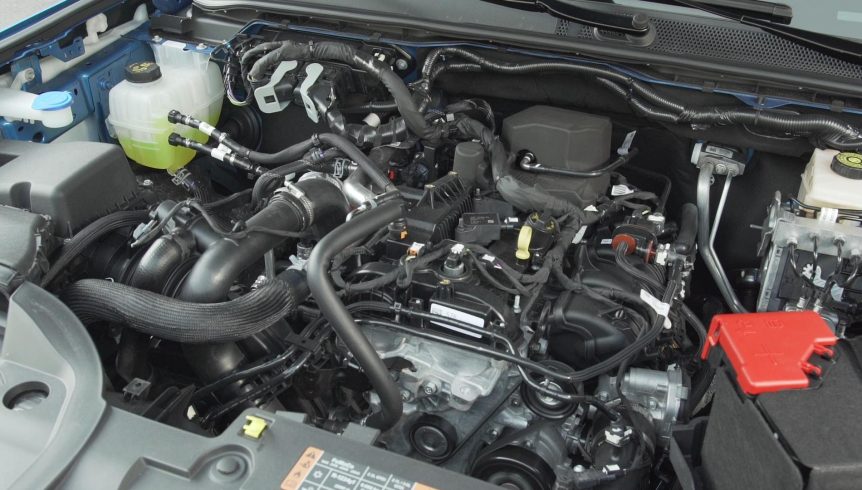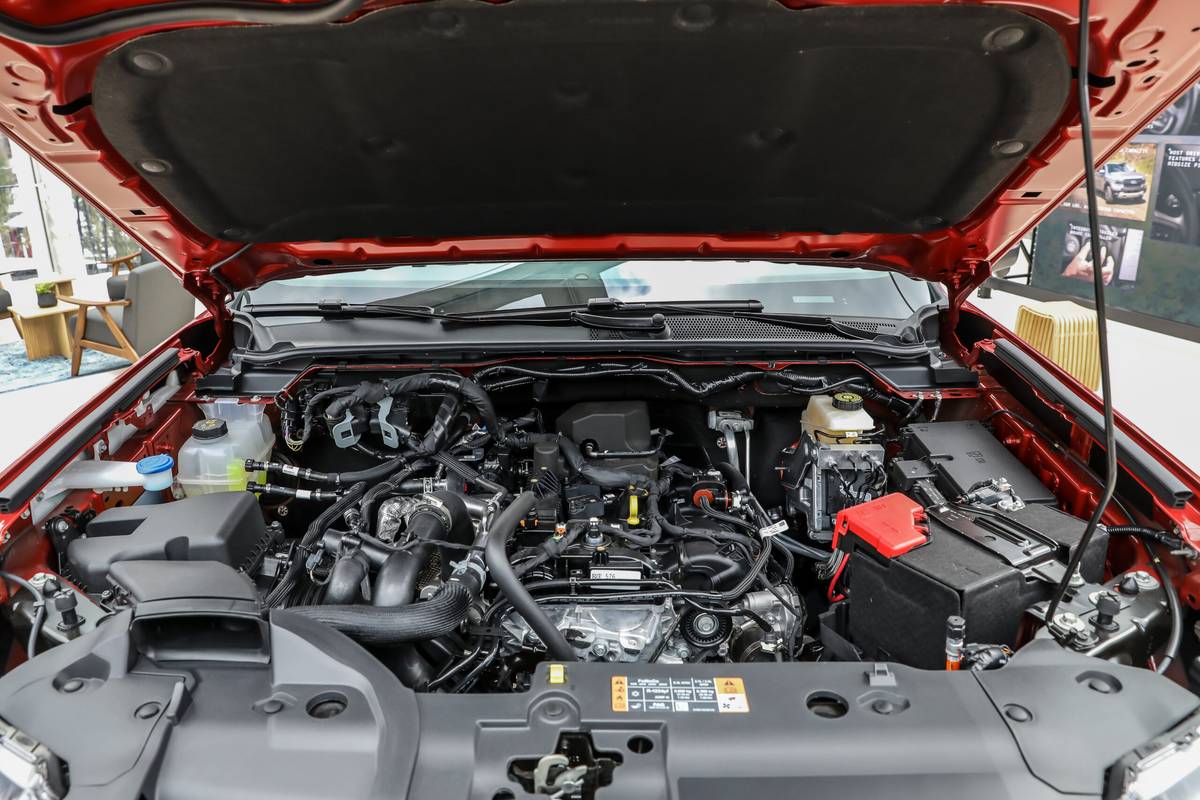How the 2.2 Ford Ranger Engine Delivers Power and Efficiency for Your Truck
How the 2.2 Ford Ranger Engine Delivers Power and Efficiency for Your Truck
Blog Article
How to Pick the Right Auto Engine for Optimum Performance and Effectiveness
Picking the ideal vehicle engine to attain an optimum balance of performance and performance necessitates a nuanced understanding of different engine types and their details attributes (2.2 ford ranger engine). Aspects such as engine variation, the number of cyndrical tubes, and fuel kind play a critical function in establishing both power output and gas economic situation.
Comprehending Engine Types
When choosing a vehicle, one of one of the most essential parts to consider is the engine type, which serves as the heart of the lorry. The engine type dramatically affects the cars and truck's general performance, longevity, and suitability for your driving requirements. There are largely three engine types to think about: interior burning engines (ICE), hybrid engines, and electrical engines.
Inner burning engines continue to be the most typical, operating gas or diesel. They are known for their power and acceleration, making them suitable for performance-oriented cars. They may fall short in fuel effectiveness and environmental influence.
Hybrid engines combine an internal combustion engine with an electrical motor, supplying an equilibrium between performance and fuel economic climate. They are significantly prominent for motorists seeking minimized discharges while still delivering adequate power.
Electric engines, powered completely by batteries, are gaining grip because of their environmental advantages and reduced running expenses. They offer instant torque and a quiet driving experience, making them optimal for urban travelling.

Performance vs. Efficiency
Picking the best engine type involves weighing the compromises between efficiency and performance. Performance usually refers to how well an engine can deliver power and acceleration, which is frequently related to larger variation engines or those with turbocharging abilities. These engines typically supply exhilarating driving experiences and fast feedback times, making them popular amongst fanatics.
On the various other hand, efficiency focuses on gas economy and reduced emissions. Smaller sized engines, specifically those geared up with sophisticated technologies such as straight gas shot and variable shutoff timing, have a tendency to supply better miles per gallon and decreased carbon impacts. While these engines may sacrifice some power contrasted to their bigger equivalents, they frequently master daily driving situations where high performance is not always needed.
Inevitably, the choice between efficiency and performance depend upon individual concerns. A driver who values spirited driving might prioritize a high-performance engine, while a person seeking cost-efficient travelling might favor a reliable alternative. Recognizing these compromises is critical for making a notified decision that aligns with your driving needs and lifestyle, making sure that the picked engine type matches your expectations for both performance and efficiency.
Key Specifications to Think About
Recognizing crucial specs is crucial for making an educated decision about the right car engine. When picking an engine, numerous critical variables call for consideration to ensure ideal performance and efficiency.
To start with, engine variation, determined in liters or cubic centimeters, is an important specification. It shows the total volume of the engine's cyndrical tubes and generally correlates with power result; larger variations commonly yield more power. Next off, the number of Visit This Link cyndrical tubes plays a considerable function in performance attributes. Engines with more cyndrical tubes can supply smoother operation and greater power, while smaller arrangements can improve fuel efficiency.
Additionally, the engine's setup, whether inline, V-type, or rotary, affects the read review overall style and performance qualities of the lorry - 2.2 ford ranger engine. Turbocharging and supercharging innovations should additionally be assessed; these increase an engine's power result without significantly increasing its size, therefore boosting performance
Gas type is one more vital consideration, as it affects both performance and expenses. The engine's compression proportion impacts performance and power distribution; a greater ratio generally leads to better effectiveness, however may need premium fuel. By very carefully analyzing these requirements, you can select an engine that aligns with your performance and performance objectives.
Reviewing Driving Demands
Examining driving requirements is an essential step in identifying the appropriate auto engine for your way of living and use patterns. Begin by assessing your daily driving routines, including the frequency and period of trips. If your driving mostly contains short commutes in urban settings, a smaller engine with excellent gas effectiveness might suffice. Alternatively, if you regularly embark on long-distance journeys or call for towing capacities, an extra powerful engine may be essential.
Take into consideration the terrain you commonly browse. Hilly or rugged landscapes might require an engine with higher torque for far better performance. In addition, show on guest and cargo demands; larger families or those who deliver products might take advantage of automobiles with raised power and ability.
Diesel engines often supply remarkable torque and gas economy for heavier automobiles, while gasoline engines may offer a smoother and quieter trip. Aspect in ecological factors to consider, as hybrid or electrical engines can provide a more sustainable choice without compromising efficiency.
Future Patterns in Engine Innovation
As the vehicle market remains to progress, technologies in engine innovation click to read are leading the way for a lot more sustainable and effective driving experiences. One considerable pattern is the shift toward electrification, with crossbreed and totally electric powertrains acquiring prominence. Automakers are spending heavily in battery technology to boost energy thickness and minimize charging times, inevitably enhancing the usefulness of electrical cars (EVs)
Another arising pattern is the advancement of hydrogen fuel cell engines. 2.2 ford ranger engine. These systems use the capacity for zero-emission driving while giving refueling times similar to typical gasoline engines. In addition, developments in burning technology, such as variable compression proportions and enhanced turbocharging, are maximizing conventional inner combustion engines for far better efficiency and efficiency
Digital assimilation is likewise a vital aspect of future engine innovation. The execution of synthetic knowledge and artificial intelligence permits real-time data analysis, making it possible for smarter engine management systems that adapt to driving problems and enhance fuel performance.

Final Thought
Finally, selecting the proper vehicle engine demands an extensive analysis of numerous factors, including engine kind, efficiency requirements, and efficiency goals. By comprehending the distinctions in between various engine kinds and taking into consideration key specs, people can align their options with certain driving demands. As advancements in engine technology continue to arise, remaining informed about future trends will even more boost decision-making, inevitably leading to a vehicle that balances efficiency and fuel efficiency efficiently.
Selecting the appropriate automobile engine to attain an optimum equilibrium of efficiency and effectiveness requires a nuanced understanding of numerous engine kinds and their certain qualities. There are mostly 3 engine kinds to think about: interior combustion engines (ICE), hybrid engines, and electric engines.
Performance generally refers to how well an engine can supply power and velocity, which is commonly linked with bigger displacement engines or those with turbocharging capabilities. Diesel engines frequently provide superior torque and gas economic situation for larger lorries, while gas engines might offer a smoother and quieter trip.In verdict, choosing the proper auto engine requires an extensive evaluation of numerous elements, consisting of engine kind, performance requirements, and efficiency goals.
Report this page